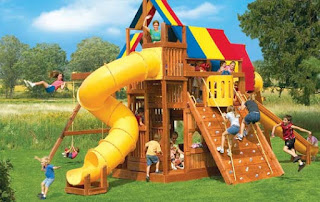For a child to develop physically and emotionally, playing is of vital importance. After the first year during which the parents' main priority is learning motor functions like standing upright, social play based tasks become the main task in a child’s life.
At this foundational stage, kids learn through play and as such, most therapy approaches use play as a medium of impact.
Toys are tools we use in Therapy to facilitate therapeutic play.When children create a make-believe world through play; for example, using toys to build a tower of blocks or race a friend to the top of a hill, they acquire the social and intellectual abilities needed to be successful in school even up to adulthood. Nearly all meaningful play includes toys.
A single, engaging toy can transform a child’s play from simple to academic, from repetitive to inventive, from solitary to social. Toys can be activated by switches, voice, proximity, touch, mounts and splitting.
There are many do-it-yourself adaptations that can be made by therapists or parents.
Creativity is needed by adults and children alike.
This promotes balance and, ideal for kids with special needs and group social play activities.
Fine motor skills involve the small muscles of the body that enable such functions as writing, grasping small objects, and fastening clothing. It develops as the neurological system matures.
The level of development of fine motor control in children is used to determine the developmental age of the child.
Fine motor control requires awareness and planning to complete a task. It also requires muscle strength, coordination and normal sensation.
Tasks such as stacking blocks, cutting out shapes with scissors, drawing lines or circles, tearing paper, buttoning a button, and holding and writing with a pencil can occur only if the nervous system matures properly.
Play is a child's "work" and it is a very important part of their physical development. Babies and young children need to have ample opportunity to play. By the age of 6 years, a child's fine motor skills have developed sufficiently enough to complete writing, dressing, and feeding tasks adequately for the average child.
They will have enough bilateral coordination, eye-hand coordination, and dexterity to complete cutting and writing tasks. Children will continue to develop and improve these skills, but the groundwork needs to be developed and established within the first six years.
This is why a child will need toys, games, and activities to perform and improve these skills during his early childhood. Fine motor skills are important in most school activities as well as in life in general.
Weaknesses in fine motor skills can affect a child's ability to eat, write legibly, use a computer, turn pages in a book, even to perform personal care tasks such as dressing and grooming.
Toys for improving fine motor include, crayons, lego bricks, beading and lacing sets, markers, plastacine sets, all pretend play sets (barbershop, make up set, playing Doc set, Kitchen, work tool bench) are great fine motor activities.
For more you could visit the Sensory care Therapy Shop.
The sensory care therapy shop
Image courtesy: pinstopin.com, forthemommas.com, parentinghub.co.za, zmescience.com, picsant.com, alibaba.com, dailymail.co.uk, wonderbaby.org, reallookautism.com, sensationalkidsot.com.au, citytheorist.com, kidbility.com, themommytalks.com, cliparthut.com, tsxmsc.com, offset.com, creativegardenschools.com, learning-difficulties.blogspot.com, thespiritscience.net, popsugar.com. b57d13e35bad3848709750de2b297a349f54c3dcaf31c14044



















